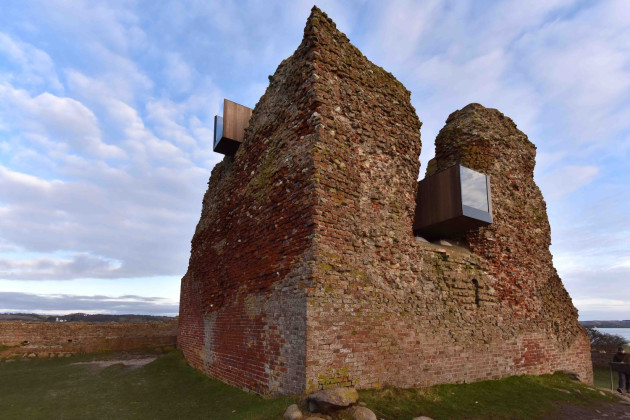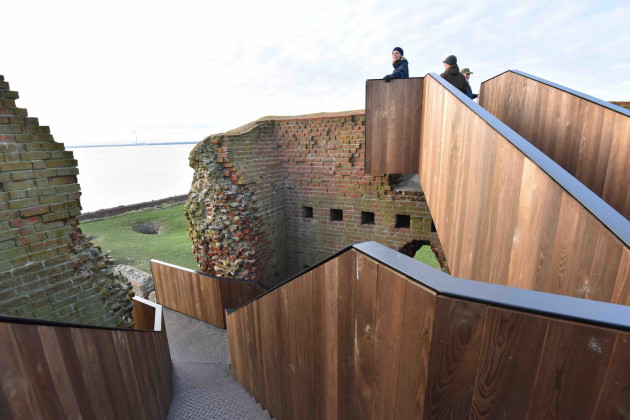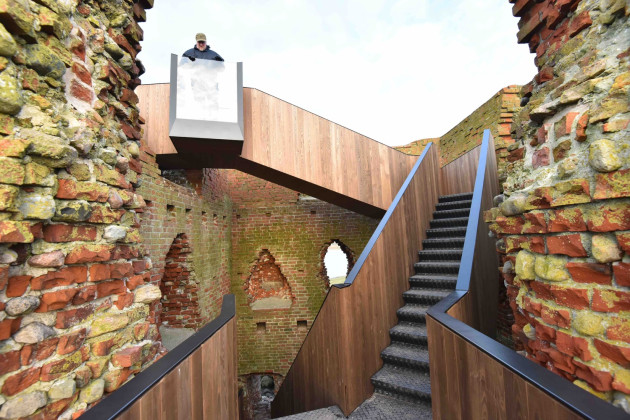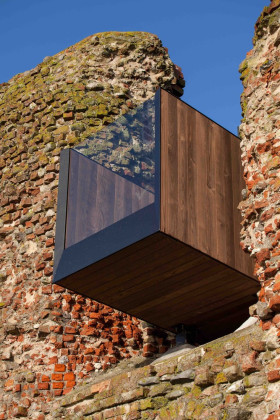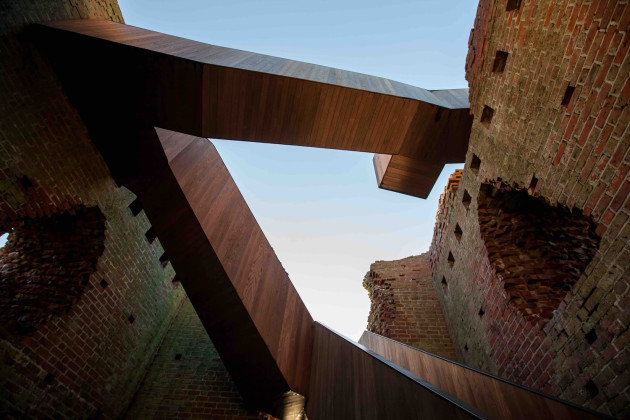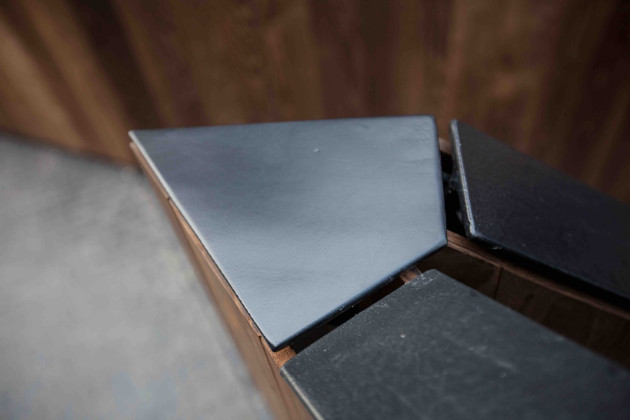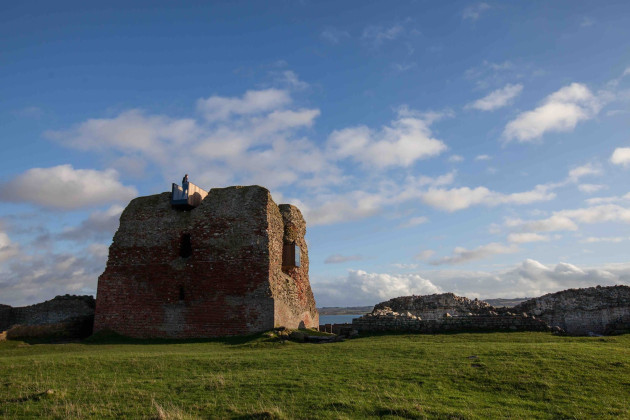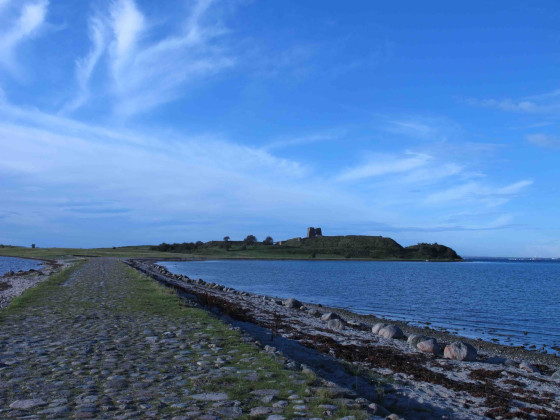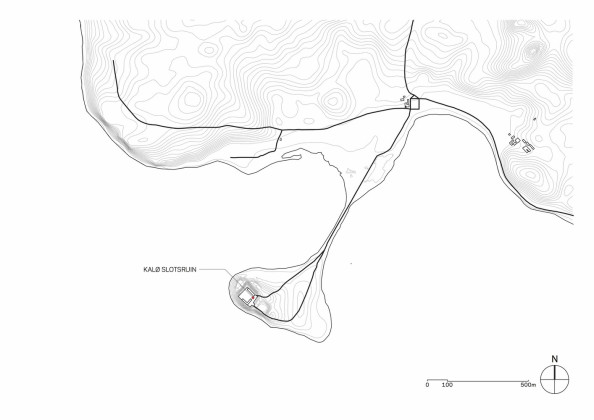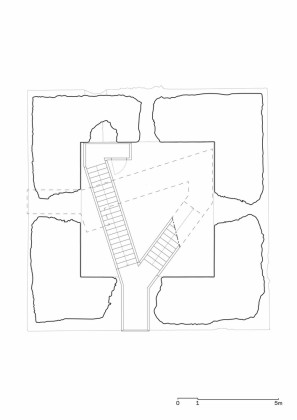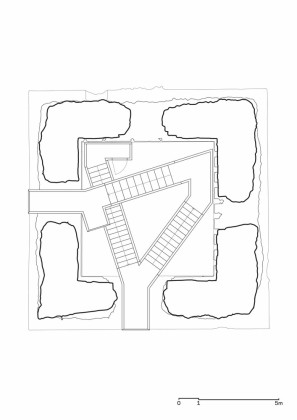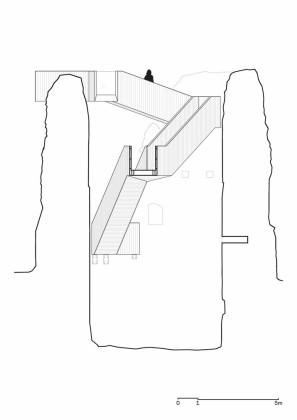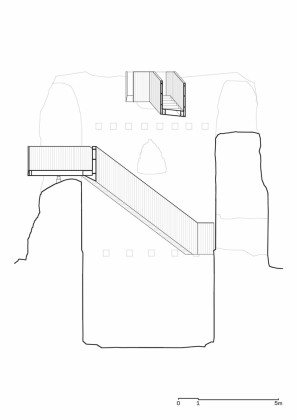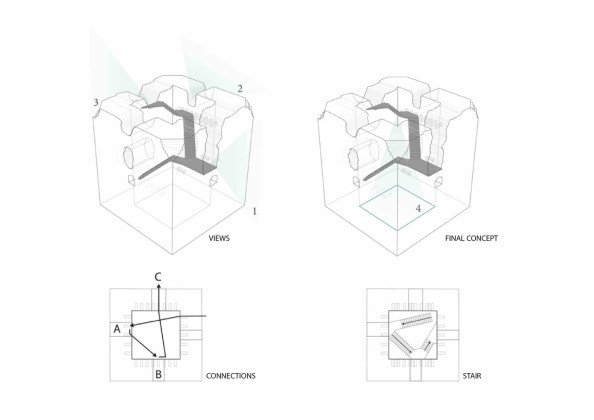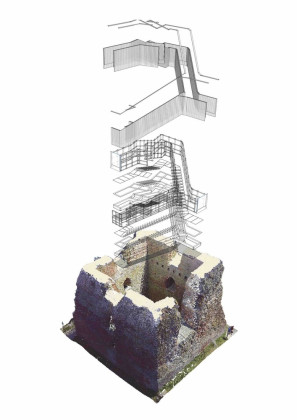Kalø Tower Visitor Access
The staircase designed for a 700-year-old medieval ruin in Denmark allows visitors to 'touch' the archaeological layers of the tower while leaving the ruin undisturbed in the landscape.
The project allows access to one of Denmark’s archaeological gems, while offering and intricate spatial experience. Previously inaccessible, the visitor can enter and climb the main space of the tower, perceive the archaeological layers and view the landscape. Culture and nature, at a small and large scale, are united by this spiral access.
This 700 year-old medieval ruin is key in Danish history. Built on an isthmus projecting from the coast, it is a local reference, a social anchor and major national tourist attraction in the northern part of the Jutland peninsula. Three stories high and two stories deep, the brick tower has been empty of its internal structure for centuries, with a single small opening at its base as the only source of visual access to the interior. The project, a zig-zagging staircase, allows the visitor to enter, experience the archaeological layers at hand’s reach, walk upwards to access façade openings and balconies, while offering at each landing the opportunity to view the magnificent landscapes surrounding this historic site. While being minimal in its detail, the staircase creates an intricate space within the cubic emptiness, culminating at its top open to the sky.
The desire to allow the visitor to “touch” the archaeological layers of the tower, and simultaneously “leave” the ruin and “levitate” in the landscape was pivotal. The architectural gesture is the geometric result of connecting openings and landings, while aiming to offer the richness of the archaeological site and the surrounding landscape. Being an archaeological site, the challenges of supporting the structure given the few anchor points allowed was substantial.
Characteristic of MAP Architects works, narrative and technology are merged to solve extreme challenges. An in-house constructed portable 3D scanner was a decisive in permitting a digital 3D of every single brick, reducing tolerances to a minimum while allowing for a design that would “fit” the site. By the constant shift of landing size, step and rise ratios, the design of a continuous handrail without height variations was achieved, greatly reducing the formal and visual clutter. What otherwise seems like a simple staircase, it has bound landscape and archelogy in an incredibly tight space, increasing the visitor experience and doubling visitor numbers overnight.
The staircase is based on a steel frame construction, supported on the ruin at only four points to minimize damage on the historical monument. The sides and underside are clad in ash wood, specially treated with heat to maximize durability to up to 60 years without paint. The stairs and handrail are metal, painted in matt black to ensure maximum durability, since the site is at the coast and therefore under tough weather conditions. The stair was constructed in 7 large pieces in a workshop normally used for off-shore elements, and mounted in the tower ruin by crane. The building site was extremely challenging since the whole area is a cultural heritage and strictly protected, therefore, no damage to the tower was allowed and the process was closely monitored.
The project has recently been nominated for the 2017 European Mies van der Rohe Award.
 17.01.2017
17.01.2017



